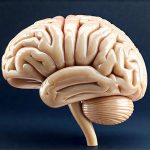Brain fog and bloating are frustratingly common experiences, often leaving individuals feeling sluggish, unfocused, and physically uncomfortable. These aren’t typically signs of serious illness on their own, but persistent occurrences can significantly impact quality of life. Often, the culprit isn’t a lack of sleep or excessive stress—though those contribute—but rather the very foods we consume. The connection between what we eat and how we feel, both mentally and physically, is deeply intertwined, and understanding these links is crucial for taking control of your well-being. Many people assume digestive issues are separate from cognitive function, but emerging research increasingly highlights a strong gut-brain axis, meaning the health of our digestive system directly impacts brain performance.
The reality is that food sensitivities, intolerances, or even simply poor dietary choices can trigger these unwelcome symptoms in susceptible individuals. It’s not always about dramatic allergic reactions; it’s often more subtle and cumulative, involving inflammation, disrupted gut microbiome balance, or compromised nutrient absorption. Identifying the specific foods causing problems requires careful self-observation, a bit of detective work, and potentially guidance from a healthcare professional. This exploration will delve into the common food triggers behind brain fog and bloating, the underlying mechanisms at play, and potential strategies for mitigation and improved health.
Common Food Culprits & Inflammatory Pathways
Certain foods are more likely to induce brain fog and/or bloating than others, although individual sensitivities vary greatly. Highly processed foods, laden with additives, preservatives, and refined sugars, are a prime example. These offer little nutritional value and actively promote inflammation throughout the body, including the brain. Inflammation is now recognized as a key contributor to cognitive dysfunction; it interferes with neuronal signaling and reduces blood flow to the brain, leading to that fuzzy, unclear thinking we associate with brain fog. Similarly, processed foods can wreak havoc on the gut microbiome, further exacerbating inflammation and impacting nutrient absorption.
Gluten, found in wheat, barley, and rye, is another frequent offender for some individuals. Even without a diagnosed celiac disease or non-celiac gluten sensitivity, many experience symptoms like bloating, fatigue, and cognitive impairment after consuming gluten. This can be due to the impact on gut health, increased intestinal permeability (often called “leaky gut”), or immune system activation. Dairy products are similarly problematic for a significant portion of the population—lactose intolerance is common, but even those who can digest lactose may react to dairy proteins, leading to inflammation and digestive distress. Beyond these major players, certain food additives like artificial sweeteners (aspartame, sucralose) and MSG have been linked to neurological symptoms in sensitive individuals. Understanding artificial flavors can also help identify potential triggers.
The underlying mechanisms often involve the immune system’s response to food particles. When the gut barrier is compromised, undigested food proteins can leak into the bloodstream, triggering an inflammatory cascade as the immune system attempts to neutralize them. This chronic low-grade inflammation contributes not only to brain fog and bloating but also to a wide range of other health problems over time. Furthermore, some foods directly impact neurotransmitter production in the brain. For example, diets high in refined sugars can lead to fluctuations in blood glucose levels, disrupting dopamine and serotonin balance, which are crucial for mood, focus, and cognitive function. It’s important to consider common foods that commonly contribute to these issues.
The Gut-Brain Axis: A Two-Way Street
The gut-brain axis is a bidirectional communication network linking the gastrointestinal tract and the brain. This connection involves neural pathways (like the vagus nerve), hormonal signaling, immune modulation, and—increasingly recognized—the gut microbiome. Trillions of bacteria reside in our intestines, collectively known as the gut microbiome. These microbes play a vital role in digestion, nutrient absorption, immune function, and even brain health. An imbalance in the gut microbiome (dysbiosis) can lead to increased intestinal permeability (“leaky gut”), systemic inflammation, and altered neurotransmitter production.
When the gut is inflamed or dysbiotic, it sends signals to the brain that can manifest as anxiety, depression, cognitive dysfunction, and other neurological symptoms. Conversely, stress and emotional states can also impact the gut microbiome, creating a vicious cycle. Foods that disrupt the gut microbiome—such as processed foods, refined sugars, and artificial sweeteners—can therefore contribute to both brain fog and bloating. Supporting a healthy gut microbiome through dietary changes (fiber-rich foods, fermented foods) and lifestyle interventions is crucial for optimizing cognitive function and digestive health. Sometimes it’s surprising how some days you can eat anything without issue!
Histamine Intolerance & Food Sensitivities
Histamine is a chemical involved in numerous bodily functions, including immune response, digestion, and neurotransmission. While it’s essential, some individuals develop histamine intolerance—meaning their bodies struggle to break down histamine efficiently. This can lead to a buildup of histamine levels, resulting in symptoms like headaches, skin rashes, digestive issues (bloating, diarrhea), brain fog, and anxiety. Certain foods are naturally high in histamine or trigger histamine release in the body. These include fermented foods (sauerkraut, kimchi, yogurt), aged cheeses, smoked meats, alcohol (especially red wine), and some vegetables (spinach, tomatoes).
Food sensitivities differ from allergies; they don’t involve an immediate IgE-mediated immune response but rather a delayed immune reaction that can be harder to identify. They often present with more subtle symptoms like bloating, fatigue, skin problems, or brain fog. Identifying food sensitivities typically requires an elimination diet—removing suspected trigger foods for a period of time (usually 2–3 weeks) and then gradually reintroducing them one at a time while monitoring for symptom recurrence. This process can be challenging but is often the most effective way to pinpoint specific food triggers. Consider what to do when reintroducing foods you’ve eliminated.
Practical Steps for Identifying & Managing Food-Related Issues
Navigating food sensitivities and intolerances requires a proactive approach. A crucial first step is keeping a detailed food diary—recording everything you eat, along with any associated symptoms (brain fog, bloating, fatigue, etc.). This can help identify potential patterns and pinpoint trigger foods. Consider these strategies:
- Elimination Diet: As mentioned above, remove suspected trigger foods for 2-3 weeks and then reintroduce them individually to assess tolerance.
- Focus on Whole Foods: Prioritize unprocessed, whole foods like fruits, vegetables, lean proteins, and healthy fats. Minimize processed foods, refined sugars, and artificial additives.
- Gut Health Support: Incorporate probiotic-rich foods (yogurt, kefir, sauerkraut) and prebiotic-rich foods (onions, garlic, bananas) to support a healthy gut microbiome.
- Hydration: Adequate hydration is essential for optimal digestion and cognitive function. Drink plenty of water throughout the day.
- Mindful Eating: Pay attention to how your body responds to different foods and eat slowly, savoring each bite.
- Professional Guidance: Consult with a registered dietitian or healthcare professional for personalized advice and support. They can help you navigate elimination diets, interpret food sensitivity testing (if appropriate), and develop a sustainable dietary plan that meets your individual needs. It’s also worth considering healthy diets may still cause discomfort.
Ultimately, understanding the connection between food and both brain fog and bloating is empowering. By paying attention to your body’s signals, making informed dietary choices, and seeking professional guidance when needed, you can take control of your well-being and reclaim clarity and comfort. Remember foods that cause gas play a big role in digestive discomfort too! Also, be aware of why some people react to specific foods like bananas.


















